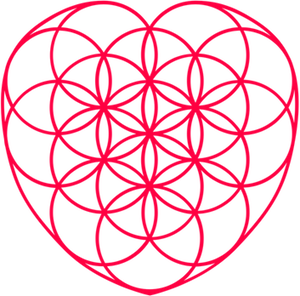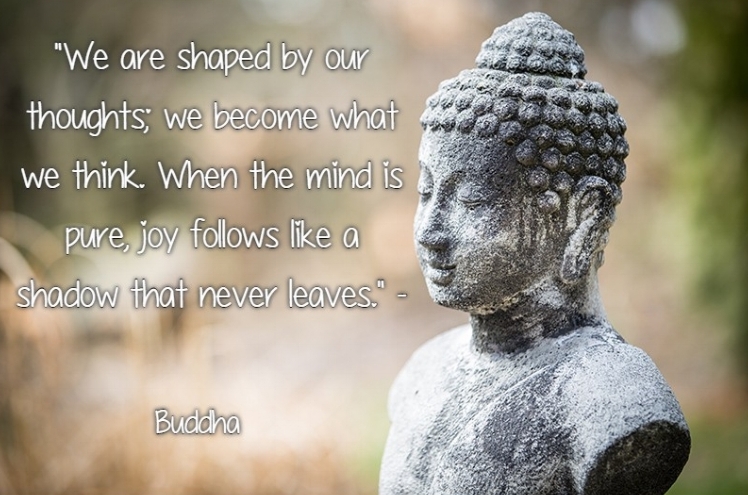Ways of Looking
I love driving, and most of all I love to put some music on in the car and sing whilst I'm driving. It makes for wonderful journeys. A lot of my music is now mantra music and I find singing these induces lovely states whilst I practise mindful driving. This week I drove to Southampton for a day of sailing with fellow JLP coaches. It was a wonderful day, but the driving part was fascinating. After leaving a little bit too late I found myself swinging between not worrying at all and just enjoying the beautiful day and the music and feeling blissfully happy and then a car would be going too slow in front of me, or I would hit a queue of cars and the stress would mount, the body and face would tense and I would forget the music and be lost in thoughts — "come on, I'm going to be even later. How can you go so slowly, you are clearly in the wrong lane". There was a lot of judgement, anger, frustration and stress — haha! And then I would notice the music again and it would clear like magic back to happiness and ease. I yo-yo'd between these two people the whole way to Southampton!
This is a great example of the three characteristics; a teaching from Buddhism, which is where the mindfulness teaching come from.
The three characteristics are ways of looking that on the surface can seem quite depressing but when they are explored are actually rather liberating and oddly can bring a lot of happiness. They are impermanence, unsatisfactoriness and emptiness.
If we look at impermanence, although intellectually we know that nothing is permanent, we certainly don't live as if this is the case. We complain about change as if it shouldn't happen, we ignore the fact that our time is limited, our life is impermanent. The nature of all things is to be impermanent. You can spend a day or a week just looking at everything you perceive as impermanent and it will change the way you live. Because you will realise that every being, everything that you know will be gone, whether that is in the next moment, a week, a year or a century from now. This moment is the only guaranteed moment you have to truly experience and appreciate it, enjoy it.
"One day some people came to the master and asked: How can you be happy in a world of such impermanence, where you cannot protect your loved ones from harm, illness or death? The master held up a glass and said: Someone gave me this glass; It holds my water admirably and it glistens in the sunlight. I touch it and it rings! One day the wind may blow it off the shelf, or my elbow may knock it from the table. I know this glass is already broken, so I enjoy it — incredibly."
— Ajahn Chah
The second is that all things are of their nature unsatisfactory. Depressing huh! That ice cream doesn't last, the person who we fall for turns out to be as human as we are, there is nothing that we can rely on that will bring permanent happiness. And yet we spend our lives looking for something or someone to give us happiness. We spend our lives trying to hold onto happiness when we have it and if you feel how that feels in the body, it doesn't feel nice. You can't actually enjoy the happiness as much because you're holding it too tightly, always looking for the next hit. A practice for this is to see what happens in meditation and outside of it when you lightly label all things, whether they are good, bad or neutral as unsatisfactory. See how it changes how it feels in the body, it can bring a sense of letting go in the body, letting go of the battling with what is unpleasant, letting go of holding onto what is nice. Funnily enough, it can actually grow the sense of happiness because you know that it is unsatisfactory and won't last you can just enjoy it for what it is now.
Image thanks to Sabine Schulte and Unsplash.
Emptiness is one of the deepest teachings, in its essence it means that nothing exists independent of the mind that perceives it. There is no fixed independent you, there is no fixed independent me. There is no fixed independent anything. A flower is perceived by a bee in a completely different way to a human. And each of us lives in our own reality dependent on our views and beliefs and our cultures and we much or all of the time take it all to be independently and inherently true. When our "truths" disagree it causes a lot of suffering in the world.
At it's deepest level with the disappearance of the mind comes the disappearance of the world. Mind and object dependently arising on each other.
"We are shaped by our thoughts; we become what we think. When the mind is pure, joy follows like a shadow that never leaves."
— Buddha
There are many ways to practice this, but perhaps worth considering that every cell of your being that you consider to be you is less than 7 years old. That your memories change based on your mood. And that who you are in the world is utterly dependent on the circumstances that surround you. If you are choosing another place to work, take a look round at the people there, and consider if you want to become more like them.
I hope this provides some interesting food for thought!
Wishing you a lovely and mindful week!
Amrit Jiwan xx
Originally published October 6th.

